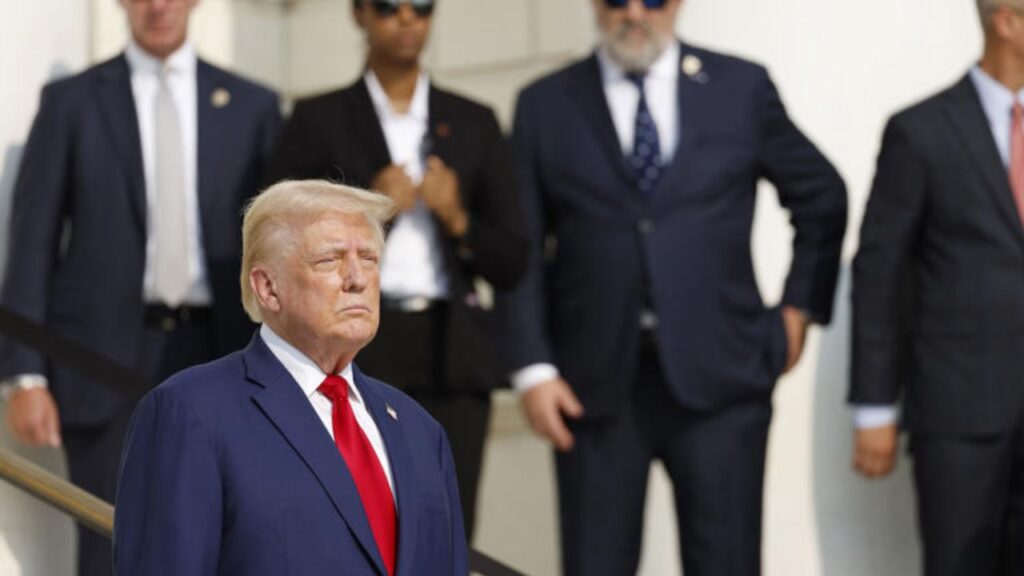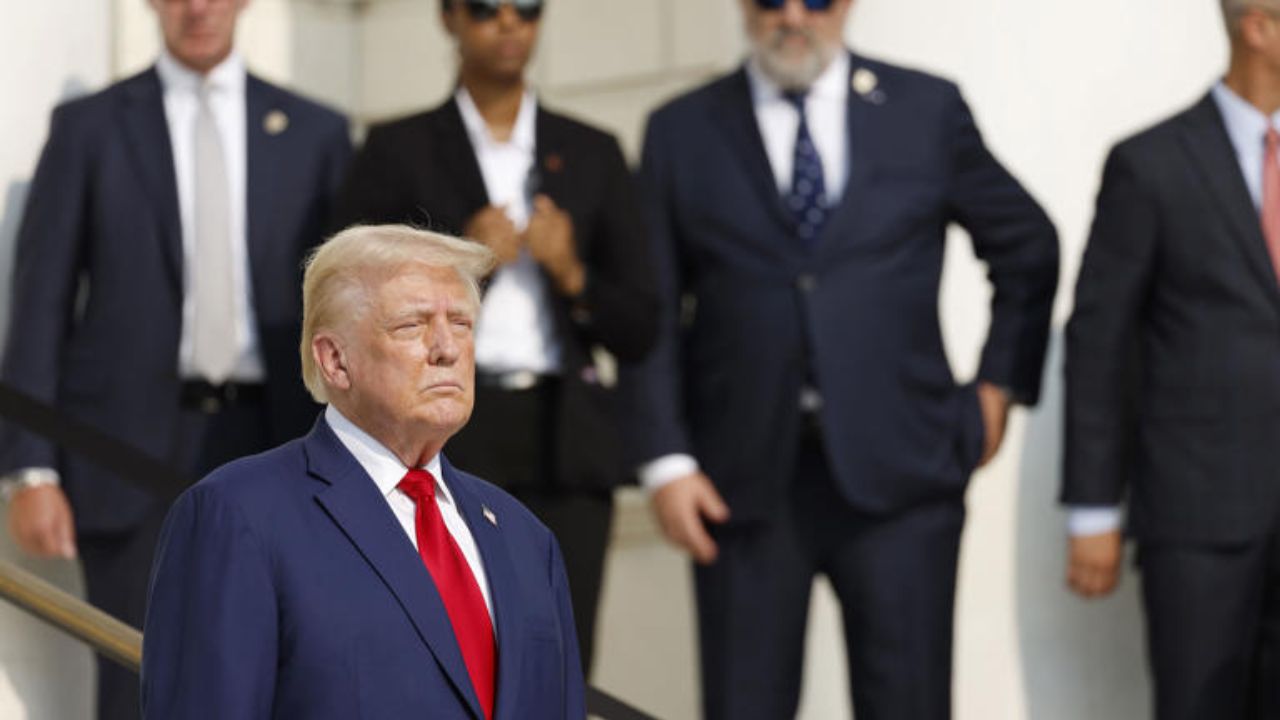Trump campaign, Arlington National Cemetery, Section 60, federal law violation, political activities, legal controversy, ethical concerns, military cemetery regulations, partisan activities, sacred spaces
Explore the legal and ethical controversy surrounding Donald Trump’s campaign activities at Arlington National Cemetery’s Section 60. This article delves into the potential violation of federal law, the implications of political activities in sacred spaces, and the broader impact on public perception and legal frameworks.

The Controversy Surrounding Trump’s Campaign at Arlington National Cemetery: Legal and Ethical Implications
The controversy surrounding Donald Trump’s campaign activities at Arlington National Cemetery, specifically in Section 60, has sparked a heated debate over the legality and ethics of political actions in such a solemn and hallowed ground. This article delves into the intricate details of the incident, exploring the legal frameworks, ethical considerations, and the broader implications for political campaigns in sacred spaces.
The Incident: A Brief Overview
The controversy erupted when Donald Trump’s campaign aides were reportedly seen shooting photos and videos in Section 60 of Arlington National Cemetery, a location dedicated to the fallen soldiers of the Iraq and Afghanistan wars. According to a U.S. defense official, as reported by The Washington Post, the campaign aides were informed multiple times that filming in this area was prohibited. Despite these warnings, the campaign allegedly proceeded, leading to what has been described as a physical altercation, although the Trump campaign has disputed the severity of the incident.
The Legal Perspective: Did Trump’s Campaign Break the Law?
At the heart of the dispute is whether the Trump campaign’s actions were illegal. Arlington National Cemetery, in its statement, suggested that the campaign might have violated federal law. The relevant legal framework here is 32 CFR § 553.32, which mandates that the executive director of the Army National Military Cemeteries ensures the sanctity of public and private memorial and ceremonial events. The law specifically states that all memorial services and ceremonies within Army National Military Cemeteries, except for official ceremonies, must be purely memorial in purpose and must not include partisan political activities.
Given that Donald Trump currently holds no official government position and that the visit was accompanied by campaign aides, the political intent behind the visit appears evident. The Trump campaign has been actively highlighting the Biden administration’s withdrawal from Afghanistan, and the imagery from the cemetery was shared in a manner that supports Trump’s political narrative.
The law, as explained by Tanya Marsh, an expert on funeral and cemetery law at Wake Forest University, grants cemeteries broad authority to establish rules for visitors. This includes barring activities such as campaign photography if they are deemed to be in support of partisan political activities. If the Trump campaign was indeed filming during the wreath-laying ceremony for partisan purposes, it could be considered a violation of federal law.
Ethical Considerations: The Sanctity of Arlington National Cemetery
Beyond the legalities, the incident raises significant ethical concerns. Arlington National Cemetery is a place of profound national importance, a resting place for those who have made the ultimate sacrifice for their country. The use of such a sacred space for political purposes can be seen as a breach of the cemetery’s sanctity.
Micki McElya, a history professor at the University of Connecticut who has written extensively about Arlington National Cemetery, acknowledges that politics are often inherent at the cemetery. However, she also notes that the Trump visit was undeniably a campaign event. The ethical question then becomes whether it is appropriate to use the memory of the fallen for political gain.
While it is true that military families and veterans have historically used Arlington as a platform to hold leaders accountable, the involvement of a political campaign in such activities crosses a line for many. The fact that family members may have approved of the campaign’s presence does not necessarily mitigate the ethical implications, as the cemetery itself did not sanction the campaign photography.
The Trump Campaign’s Defense
The Trump campaign has attempted to defend its actions by sharing snippets of emails and text messages suggesting that they had clearance from the cemetery and approval from the families involved. However, these communications have not specifically addressed the restrictions in Section 60, leaving room for interpretation.
Moreover, while the families’ approval may soften the perception of the campaign’s actions for some, it does not override the legal and ethical considerations set forth by the cemetery’s regulations. As McElya points out, the law does not grant families the authority to sanction campaign activities in such a space.
Potential Consequences: Legal and Political Repercussions
The full extent of the legal and political repercussions of this incident remains unclear. The cemetery has stated that it filed a report on the matter, but it is not known what further actions, if any, will be taken. Even if the Trump campaign’s activities were illegal, the law does not specify criminal penalties for such violations. However, the incident could lead to a broader discussion on the need for clearer regulations and enforcement mechanisms to protect the sanctity of military cemeteries from political exploitation.
In the political arena, the incident has already drawn criticism from figures such as Rep. Gerry Connolly (D-Va.), who represents Northern Virginia and has called for more transparency regarding the report filed by the cemetery. The controversy may also impact public perception of Trump’s campaign, particularly among those who view Arlington National Cemetery as a symbol of national unity and reverence.
The Broader Implications: Politics in Sacred Spaces
This incident is not just about a single event; it highlights the broader issue of how political campaigns navigate sacred spaces and the ethical boundaries that should govern such actions. Arlington National Cemetery, like other memorials and national monuments, is a place where the nation’s collective memory is preserved. The use of these spaces for political purposes can blur the lines between honoring the fallen and advancing a political agenda.
The controversy surrounding Trump’s campaign at Arlington National Cemetery serves as a reminder of the importance of maintaining the sanctity of such spaces. As the nation becomes increasingly polarized, the need for clear guidelines and respect for sacred sites becomes ever more critical.
In conclusion, the incident at Arlington National Cemetery involving Trump’s campaign raises complex legal and ethical questions. While the legal consequences remain uncertain, the ethical implications are clear: the use of a hallowed space like Section 60 for political purposes is a matter of significant concern. As the nation reflects on this controversy, it may prompt a reevaluation of how political campaigns engage with sacred spaces and the need for stronger protections to preserve their sanctity.
Read More
